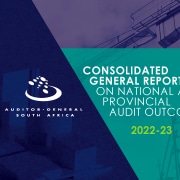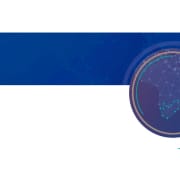|
Getting your Trinity Audio player ready...
|
Auditor-General (AG) Tsakani Maluleke has cautioned the government of national unity (GNU) to prioritise service delivery and enhance inter-governmental planning in its capacities in both the executive and the legislature. Maluleke released the latest audit outcomes for provincial and national departments and entities, governed by the Public Finance Management Act (PFMA), on 27 November in a briefing before the parliamentary Standing Committee on Public Accounts.
She said the audit outcomes over the term of the previous (sixth) administration – the focus period of the report – “show an improvement in the ability of national and provincial government to transparently report on their finances and performance”.
Just under a third of the 415 auditees covered in the 2023/24 period – a total of 142 – received clean audits, an improvement from the previous auditing period’s 93. The 142 comprise 63 departments and 79 public entities, while another 168 received unqualified audits with findings.
Meanwhile, 50 auditees regressed but still, there was an overall net improvement of 24%, reported Maluleke. Furthermore, more auditees improved their audit outcomes than regressed during every year of the sixth administration.
Maluleke believes a substantial number in this category may well move to the clean audits group if they keep improving their systems. “Just over 40% of auditees obtained an unqualified audit opinion with findings. This is not a desirable outcome, and auditees should not remain comfortable in this category as they currently do.”
Although their financial statements might be unqualified – often due to corrections made based on the AG’s findings – the material findings on performance mean that their performance reports are not credible, said Maluleke. “The material findings on compliance signal a disregard for legislation or significant lapses in control. They could easily lose the unqualified status due to these remaining challenges in their control environment.”
The rest of the categories are made up of qualified audits with findings (58); adverse audits with findings (four); disclaimed audits with findings (five), while as many as 38 entities were not audited for this period, a sharp rise from eight in the previous audit period. Maluleke said the 142 that received clean audits accounted for R266.28-billion of the state’s expenditure budget of R2.07-trillion for national and provincial government.
“It is worth reporting that the last administration dealt with the covid-19 pandemic and various disasters, including the floods in KwaZulu-Natal and the Eastern Cape. In our special reports, we highlighted the good work done by the sixth administration in dealing with these disruptive events, but also reported on weaknesses in how auditees responded,” Maluleke said.
Keep up the momentum
It is important for the current administration, made up of the GNU, to keep the momentum going and remain focused on functions that directly affect service delivery, said the AG.
“Improved service delivery and the responsible use of the limited funds available will only be possible when we have capable, cooperative, accountable and responsive institutions that deliver on their mandates. I urge all role players in the accountability ecosystem, particularly those with direct control over service delivery, to work deliberately and with urgency towards a heightened level of accountability, transparency, integrity and improved service delivery for all South Africans.”
Maluleke cautioned that there was an urgent need to accelerate disciplines for quality performance planning, monitoring and reporting at the auditees that have the biggest impact on South African lives and on government finances. Together, these auditees were responsible for approximately R1.6-trillion (77%) of the expenditure budget of national and provincial government in 2023/24.
“When auditees, especially high-impact auditees, do not properly manage their performance, finances, and infrastructure, this directly affects the delivery of key government programmes that are intended to improve the lives of South Africans and to alleviate hardships stemming from tough economic conditions and poverty.”








